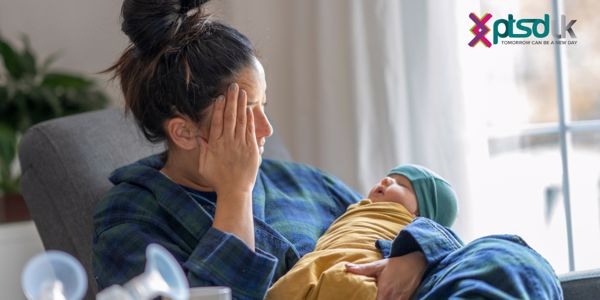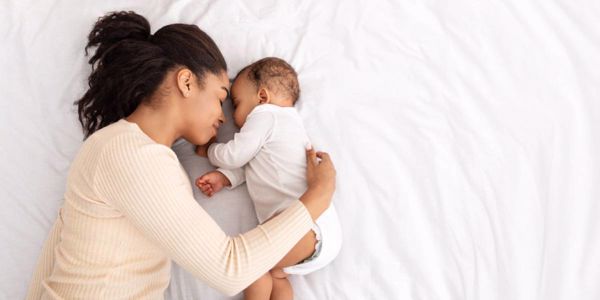If you are suffering from perinatal depression and anxiety, maternal OCD, birth trauma, postpartum psychosis or PTSD, several resources are already available.
In the first instance, your first point of contact should be your GP.
Talk to them if:
- You are concerned about your mood
- You are worried about your thinking
- You are worried about your physical health
- You are having thoughts about wishing you weren't here or harm to yourself, your baby or others around you.
- You feel like you are isolating yourself, avoiding things or not engaging in life how you want.
- Having flashbacks (strong thoughts, images, sensations) to your birthing experience/ antenatal/ postnatal experiences
Your GP should assess your mental health and refer you to the relevant mental health support on the NHS; this may be general counselling, CBT (cognitive behavioural therapy), or in some cases, EMDR (Eye movement desensitisation reprocessing- a trauma therapy). You may be referred to a CBT well-being service or your perinatal mental health team. However, there is typically a long waiting list.
Most hospitals offer birth reflections. If you think it would be helpful to go through your notes and learn more about what happened during your birth experience, you can access this through your labour ward directly or through your GP or health visitor.
Organisations like Maternal Mental Health Alliance have lots of online resources and support groups designed to help you navigate this tricky time. Whether you’re looking for advice, someone to talk to, or just reassurance that you’re not alone, these charities are there for you:
Bliss supports families who have been in neonatal care, born either premature or sick. They offer emotional support via email at: hello@bliss.org.uk. Their website can be found at https://www.bliss.org.uk/.
PANDAS offer support for parents with PND and PTSD. The free PANDAS helpline is available from 11 am-10 pm every day, and they’re on hand to offer support and advice, as well as helping to direct you to other organisations, if necessary. Call on 0808 1961 776, or email at info@pandasfoundation.org.uk
Mind supports everyone suffering from mental health problems. For non-urgent information about mental health support and services that may be available to you from Mind, call them on 0300 123 3393 or email info@mind.org.uk
Tommys focus on supporting parents after loss, and have a lot of resources and support available on their website at https://www.tommys.org/.
Maternal Mental Health Alliance
The Motherhood Group supports Black mothers through the experience of motherhood. They also have a counselling service: www.themotherhoodgroup.com/counselling.
Sands works to support anyone affected by the death of a baby, improve the care bereaved parents receive, and create a world where fewer babies die. Call their helpline on 0808 164 3332, or email helpline@sands.org.uk
Birth Trauma Association have a team of parents who have all experienced traumatic birth themselves and been through a process of recovery. If you'd like to talk to them over email about your experience, please get in touch with them at support@birthtraumaassociation.org.uk or phone them on 0203 621 6338
Make Birth Better support both parents and professionals impacted by birth trauma. They share different treatment options and other sources of support to help you through your recovery at https://www.makebirthbetter.org.
PTSD UK is the only charity in the UK dedicated to raising awareness of post-traumatic stress disorder – no matter the trauma that caused it. For guidance from PTSD UK on helping you find local mental health services and information on trauma and PTSD, visit https://www.ptsduk.org/treatment-help/where-to-get-help/




